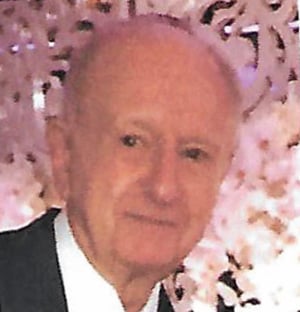
Part 6
(Continued from last week)
In 1918 after the war had ended, with my father in the artillery on the French front, the unit paymaster (soldiers were paid in cash) had cash in his wagon. Since the war was over, he was obligated to return it to headquarters in Berlin. The paymaster did not want to go to Berlin since it was in the opposite direction from his own home, to which he wanted to return. He asked my father to go to Berlin for him despite the fact that my father’s home was also not in the direction he was being sent. Since the paymaster had a higher rank than my father, there was no question that my father would comply with the instructions given to him. He was given the paymaster’s horse and wagon and all the cash in it, and he set out for Berlin. He never told us how long it took, but I can imagine, it must have been weeks. Anyhow, he got to the destination and delivered the cash. When the officer saw what he was being given by a plain soldier, he looked at him and said, “Sind Sie verrückt”? (Are you crazy?). He could not understand that here was a man so honest that he travelled for weeks with horse and wagon to return money, when he could just as well just have gone home and kept the money. No one would have known about it. That is how a Jew behaved.
In October 1916, the Prussian War Ministry ordered a statistical investigation of the behavior of the Jews during the war. The collection of the information was left to the local troop level. How were wounded or captured soldiers counted? Soldiers who had special knowledge who had been ordered to desk jobs? How were they counted? Moreover, the handling by low-level soldiers would guarantee that anti-Semitism would certainly influence how the data would be recorded and presented. The results were never published, which gave the anti-Semites more ammunition to state that the results were so detrimental to the Jews that publication was withheld.
With the political and economic conditions deteriorating in 1917, the Reichskanzler Bethmann Hollweg tried to keep peace within the various factions with the result that he made enemies with everyone, to the extent that he had to resign in July. Certain groups including the anti-Semites tried to promote a military dictatorship as the best way to conduct a successful war and to promote their anti-Jewish program. They tried to enlist the highest military officer corps, including General Ludendorff, who although agreeing with a military dictatorship were not ready to take on the responsibility, particularly in light of the refusal of the Kaiser to agree to it.
Jewish anti-Semitic organizations grew in all parts of the country and in all levels of the population. Although again the call came to unify into one national organization, it was not successful since they could not agree on one unified theme. But the seeds had again been planted and in some cities, there was a call for pogroms.
In October 1918, with the war situation hopeless, Prince Max von Baden formed a new parliament combining all the parties wanting to make peace. The extreme nationalists and the anti-Semites disregarded all restraints, even toward the Kaiser, and decided to take over the leadership of the country. They declared the new government as illegitimate on October 15, and stated that they would do everything possible to destroy it. Freiherr von Gebsattel wrote that the Jews were the responsible party for the new government. He admitted that the majority of the people supported the new government, but this was only due to the poison with which the Jews had infected the people. To him, democratic ideas were poison, and this was of Jewish origin.
No one at this point could realize the danger the Jewish people faced at this time. The general population did not concern itself with the anti-Semitic groups, assuming that they did not have the majority backing. Nobody denied that during the war, the anti-Semitism had a resurgence, but that was written off as being the work of “malcontent reactionaries.”
When finally, the “Waffenstillstandsverhandlungen” (Armistice negotiations) overwhelmed the population, it was “foreign elements,” meaning Jews, who were held responsible. On October 20, the “Alldeutschen” Group called for the filling of the streets in Berlin and 100,000 showed up to demonstrate against the Jews and all those that supported them. The Jewish existence in Germany was in great danger.
The editor of the Deutschen Zeitung wrote that during the war Polish and Russian Jews came into the country and with Russian-Jewish money infiltrated into German groups and prepared the downfall after the end of the war. The government that had come to power through the Jews had to be eliminated. Already in October 1918 Jew haters had called for the killing of all Jews, and they now attempted to bring the people to a “boiling heat” by urging the people not to consider any fears of consequences of terror.
(To be continued next week)
By Norbert Strauss
Norbert Strauss is a Teaneck resident and Englewood Hospital volunteer. He frequently speaks to groups to relay his family’s escape from Nazi Germany in 1941.










